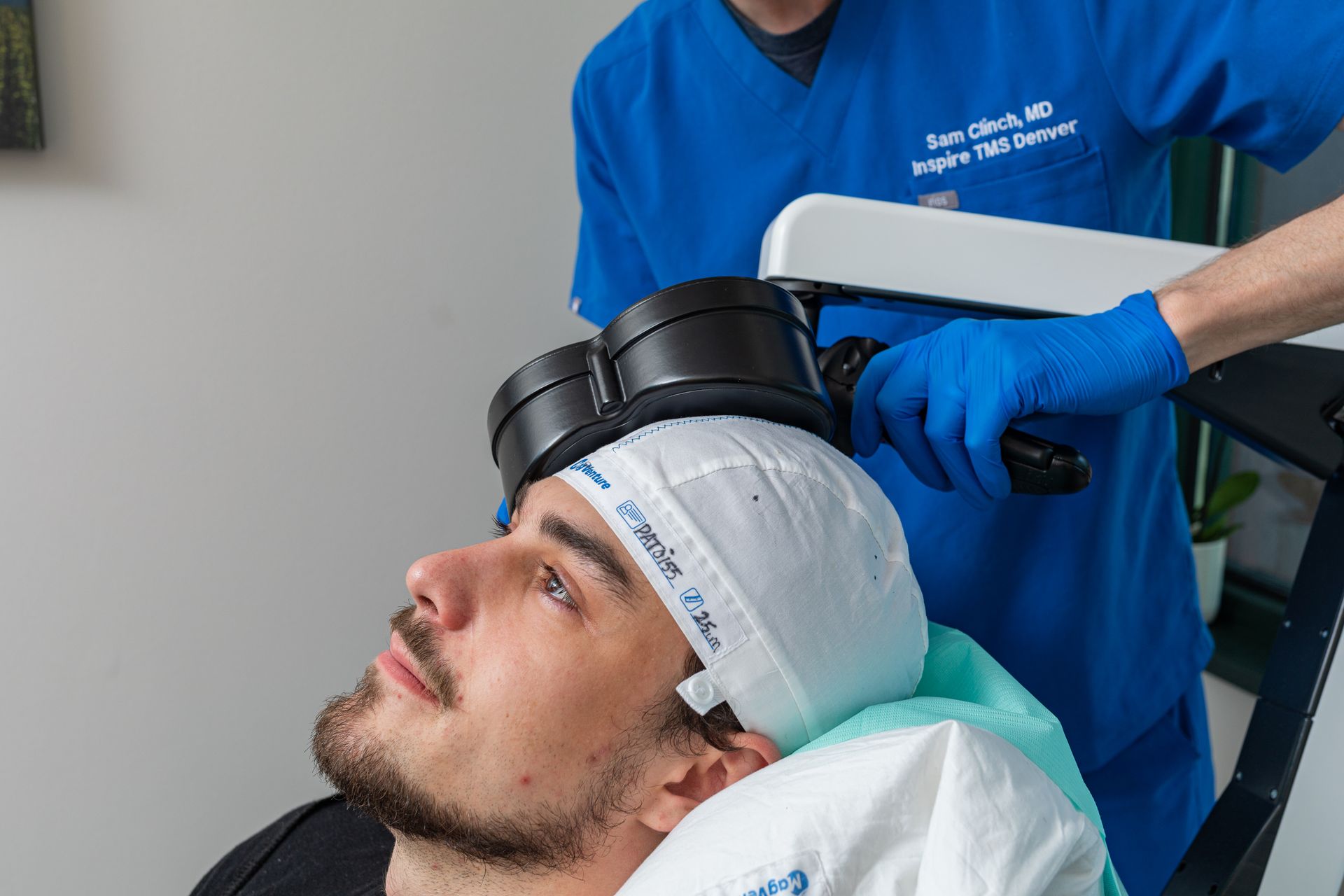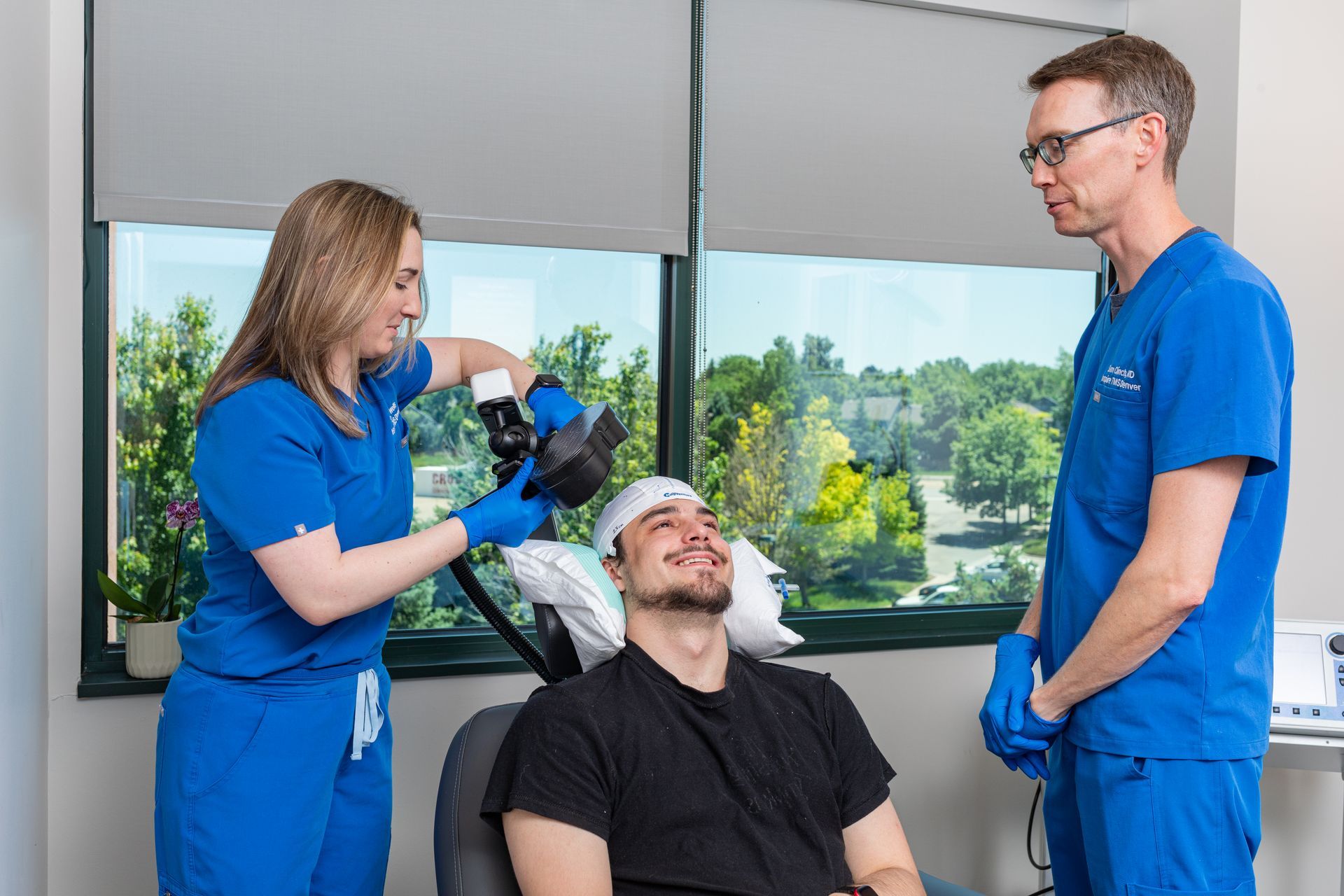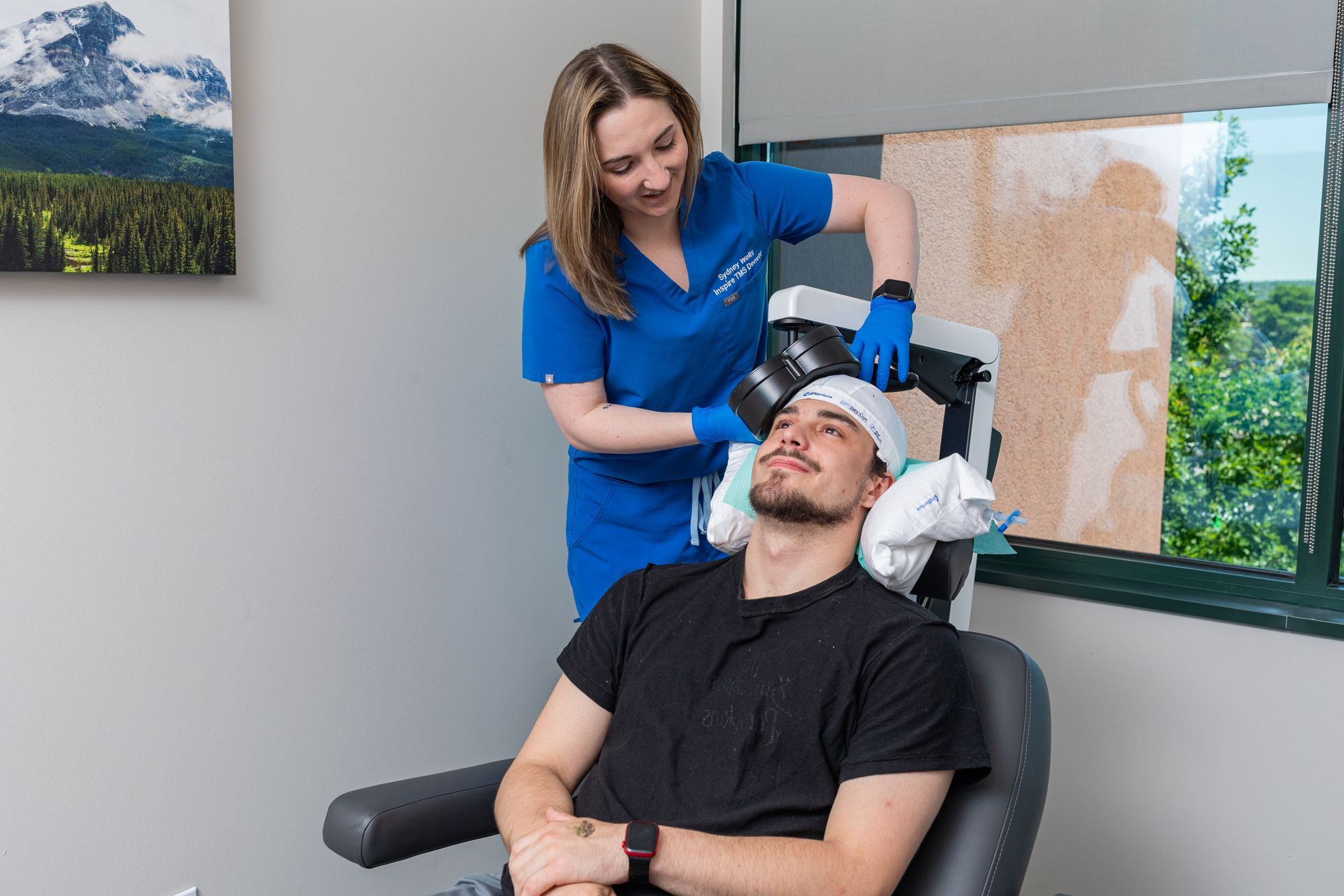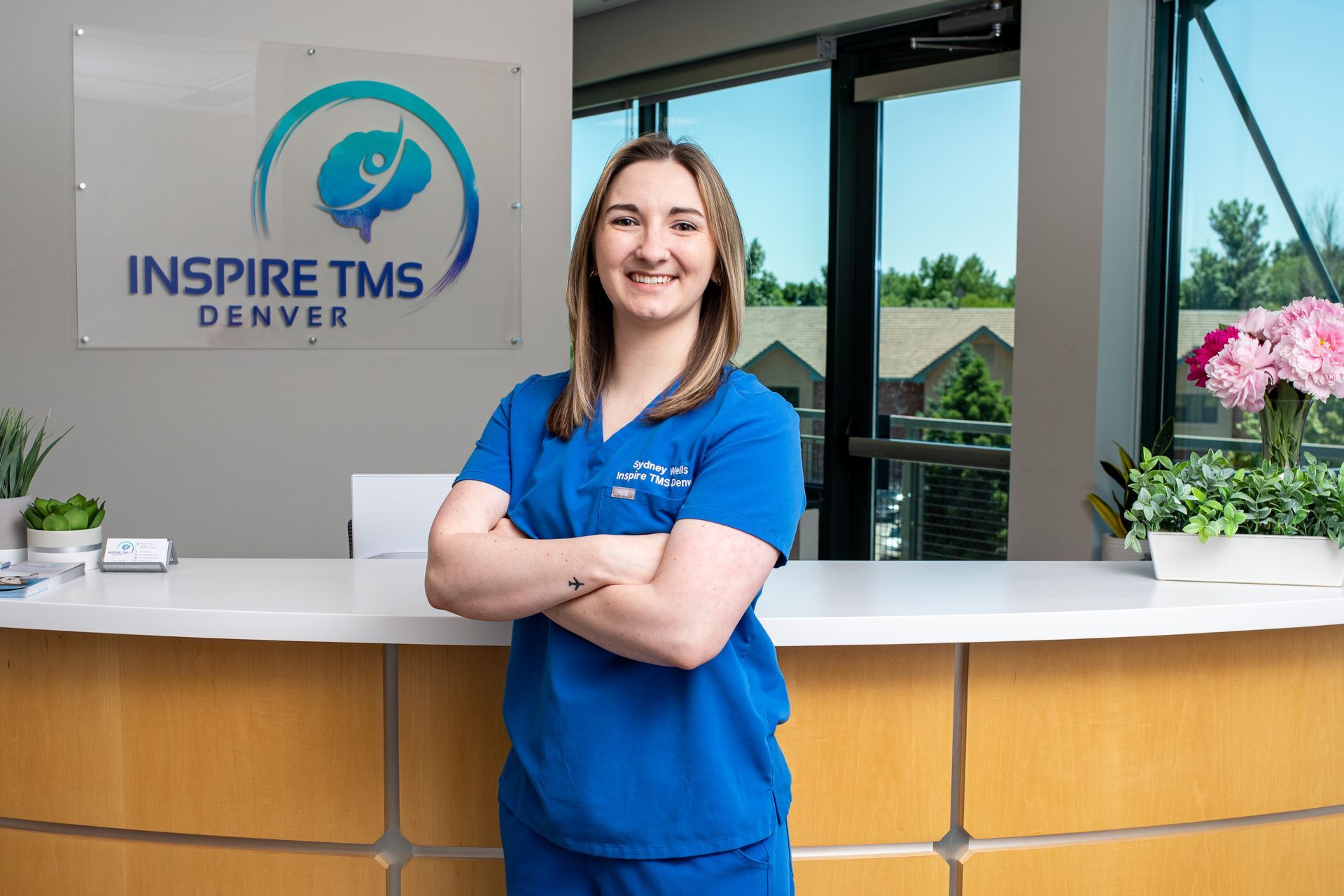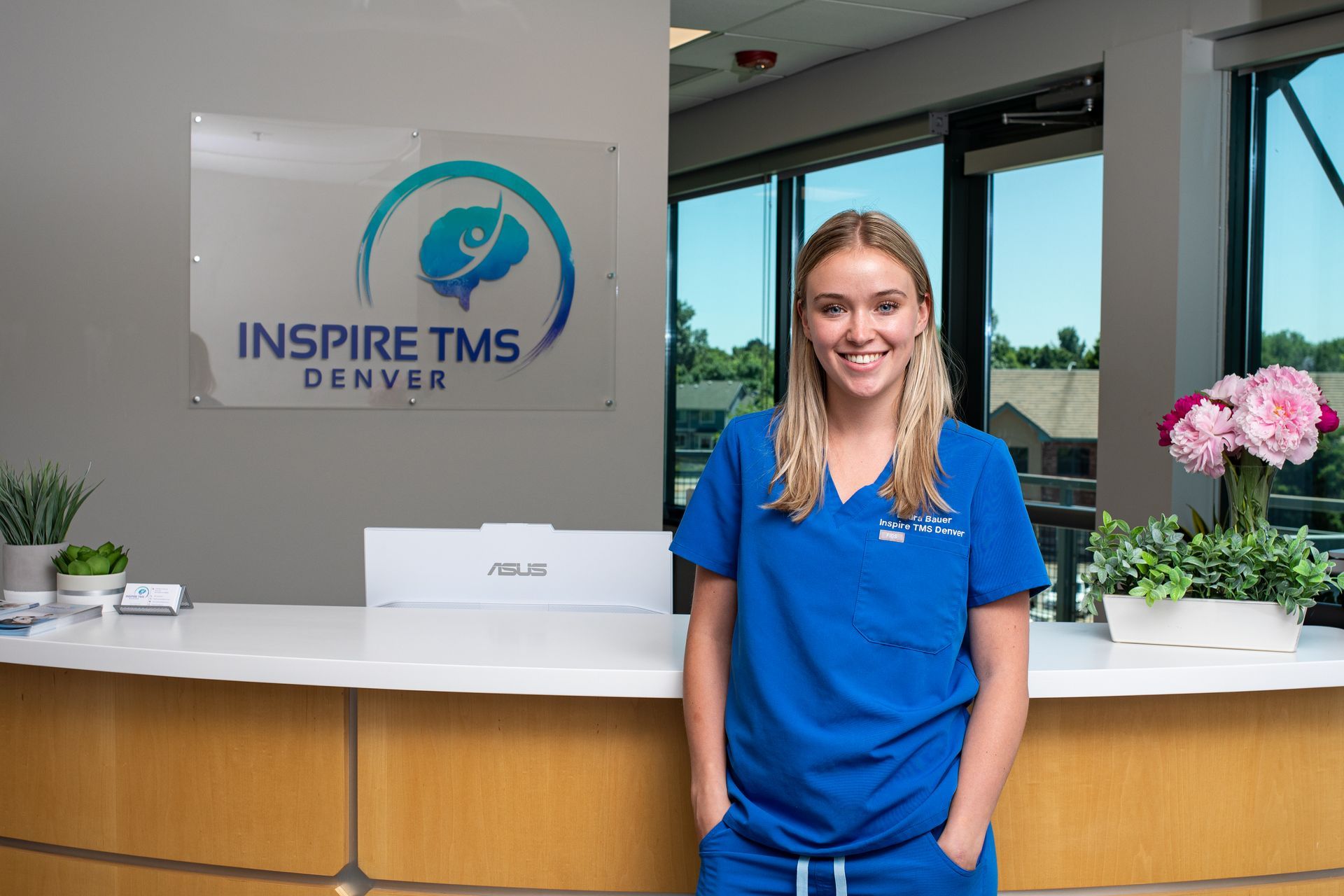Welcome to TMS at Inspire TMS Denver
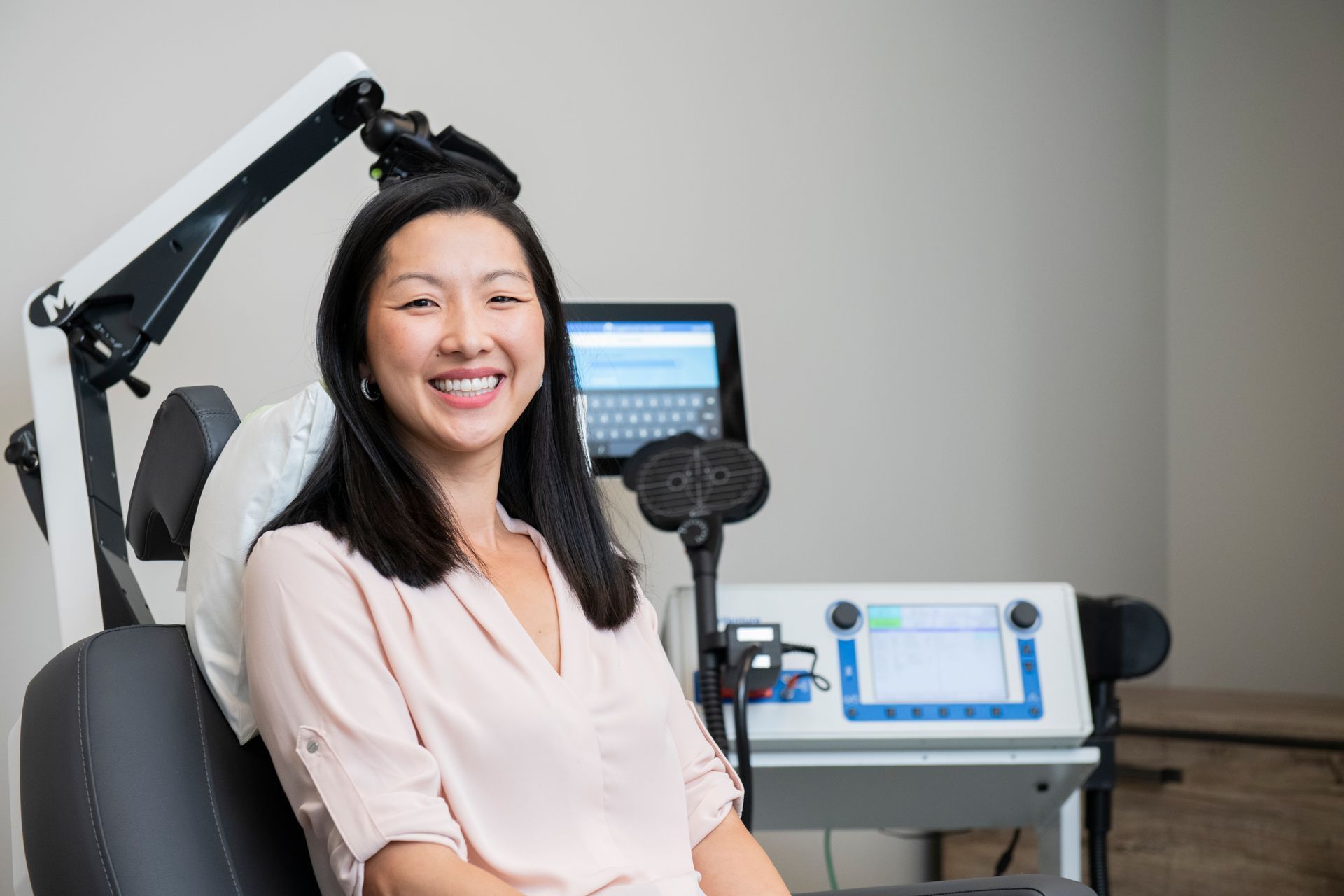
We’re so glad you are here and taking this step to better your mental health. This guide is your companion in understanding how to maximize the benefits of Transcranial Magnetic Stimulation (TMS). Below, you’ll find practical advice and insight into what to expect during treatment, how to stay on track, and how to optimize your results.
Want a Copy to Keep?
Download our "Welcome to TMS" flyer for tips on how to get the most out of your treatment.
1. Maximize Your TMS Results
Attend Your Sessions Consistently
You can miss some sessions here and there - life happens. But TMS is most effective with consistent sessions, so do your best to stick to your schedule.
Be Patient and Promising
TMS works for over 80% of patients, but results can take 2–3 weeks or longer to show. Stay hopeful and consistent—this is a marathon, not a sprint.
Mindset Matters
What you do during treatment matters. Try to stay mentally engaged: listen to music, chat with your tech, or repeat positive mantras. Avoid things that make you sleepy or disengaged.
Limit Alcohol and Drug Use
Alcohol, cannabis, and recreational drugs can interfere with how TMS works. It’s best to limit or avoid these substances during treatment to improve your chances of success.
Take Medications Consistently
If you take psychiatric medications, continue them unless advised otherwise. Studies show TMS works even better when paired with regular medication.
Talk to Your TMS Tech
Be honest! Share how you’re feeling - including if you’ve used substances, are struggling with symptoms, or feeling stuck. Your tech is there to help you get the best outcomes.
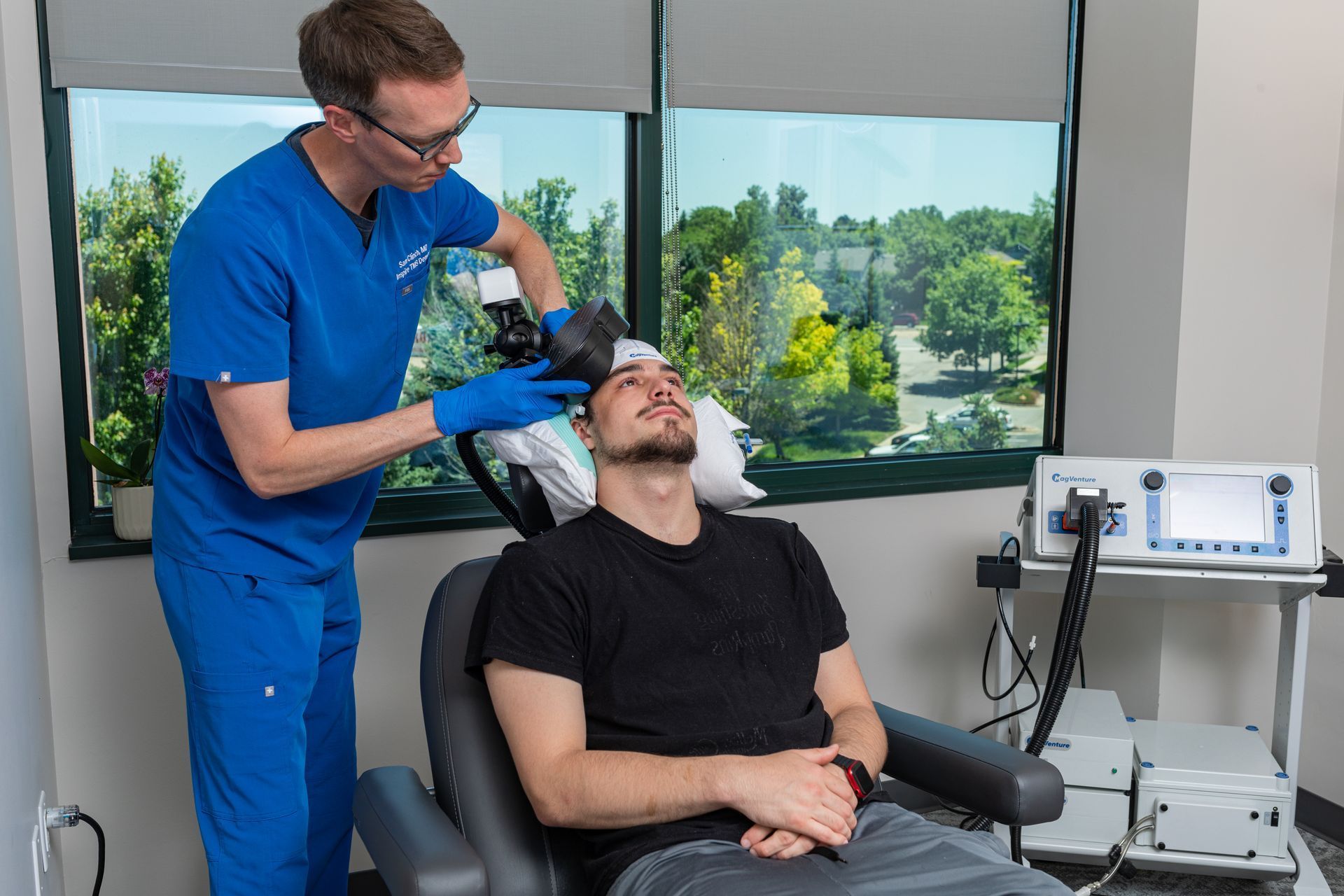
2. Check for Contributing Factors & Optimize Support
Ensure Basic Labs Are Done
Common conditions like hypothyroidism, anemia, or sleep apnea can contribute to depression. Make sure these are checked and managed for better outcomes.
Consider Supplements
Some supplements may help:
- L-methylfolate (7.5–15 mg) especially if you have an MTHFR gene variant
- Omega-3s (EPA:DHA 2:1 ratio) can support brain health
- Vitamin B12 & D may help if levels are low
Be Open to New Medications
If previous medications haven’t worked, don’t lose hope. Newer meds—or even past ones that once worked - may be helpful after TMS.
Consider Genetic Testing
Alcohol, cannabis, and recreational drugs can interfere with how TMS works. It’s best to limit or avoid these substances during treatment to improve your chances of success.
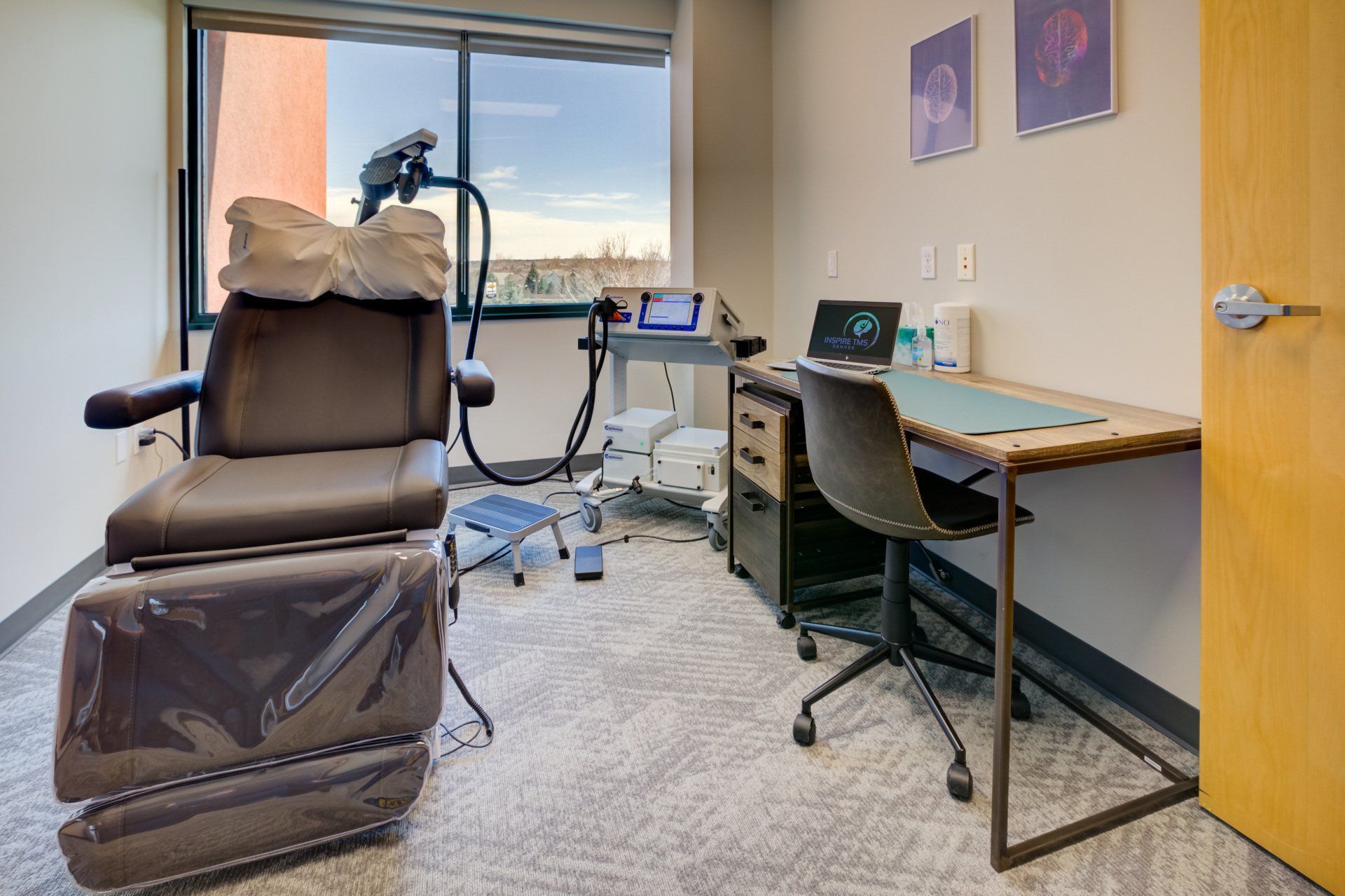
3. Lifestyle Habits to Support Your Treatment
Stay Hydrated
Water is essential for brain function. Avoid alcohol, and aim to stay hydrated every day to support your results.
Attend Therapy During TMS
Therapy can enhance TMS outcomes. It helps reinforce healthy behaviors and provides a strong foundation for recovery.
Prioritize Sleep Hygiene
Try to maintain a consistent sleep schedule - even on weekends. A good night’s rest helps you stay alert and responsive during treatment.
- Pro tip: If you’re groggy, a small amount of caffeine before your session might help - unless you’re sensitive to it.
Keep a Journal
Tracking how you feel daily helps you and your provider monitor progress. Journaling can reinforce positive thinking and identify subtle changes over time.
Exercise and Eat Healthy
Exercise boosts mood and motivation. One study showed people who exercised saw a 43% improvement in depression compared to those who didn’t. Regular movement and a healthy diet support your brain and treatment outcomes.
You're Not Alone
Each step you take brings you closer to feeling better. Stay committed, be open, and trust the process - because lasting change is possible.

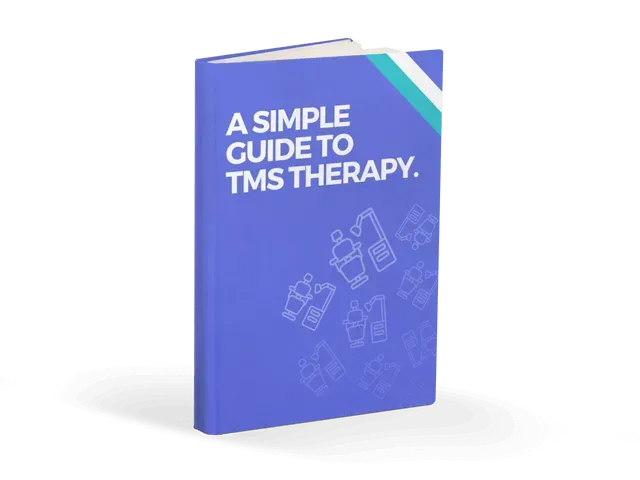
Every Question Answered
Want to know more about TMS? Check out this in-depth guide to TMS therapy with transparent and easy to understand explanations about TMS processes, protocols, and treated conditions.
Latest Posts
